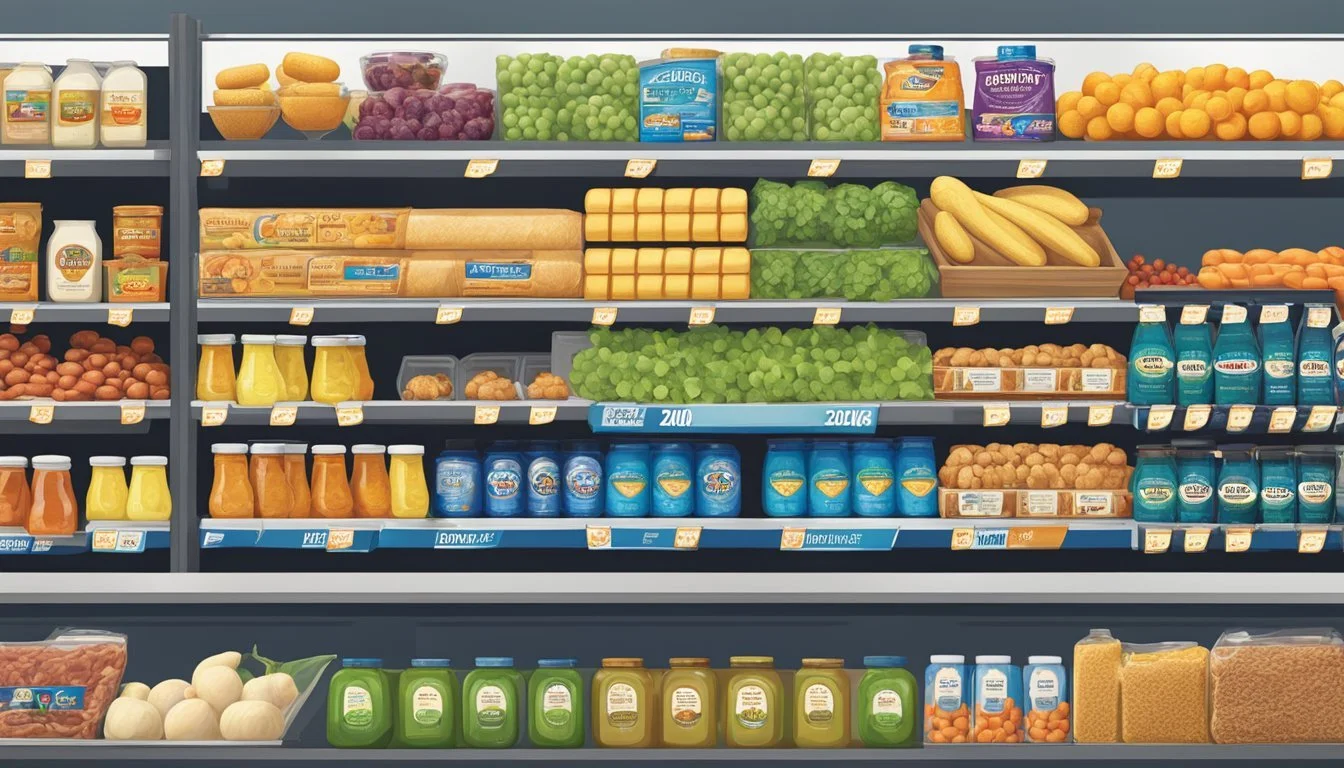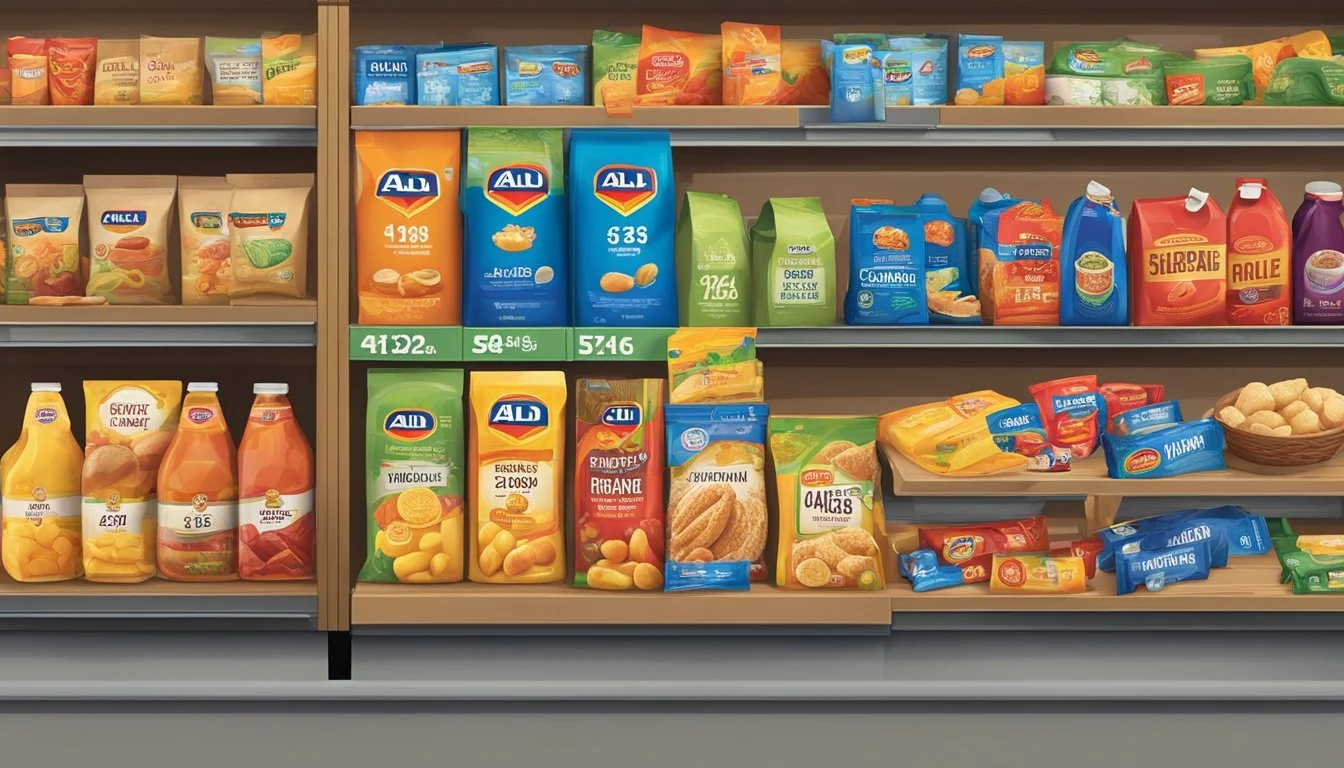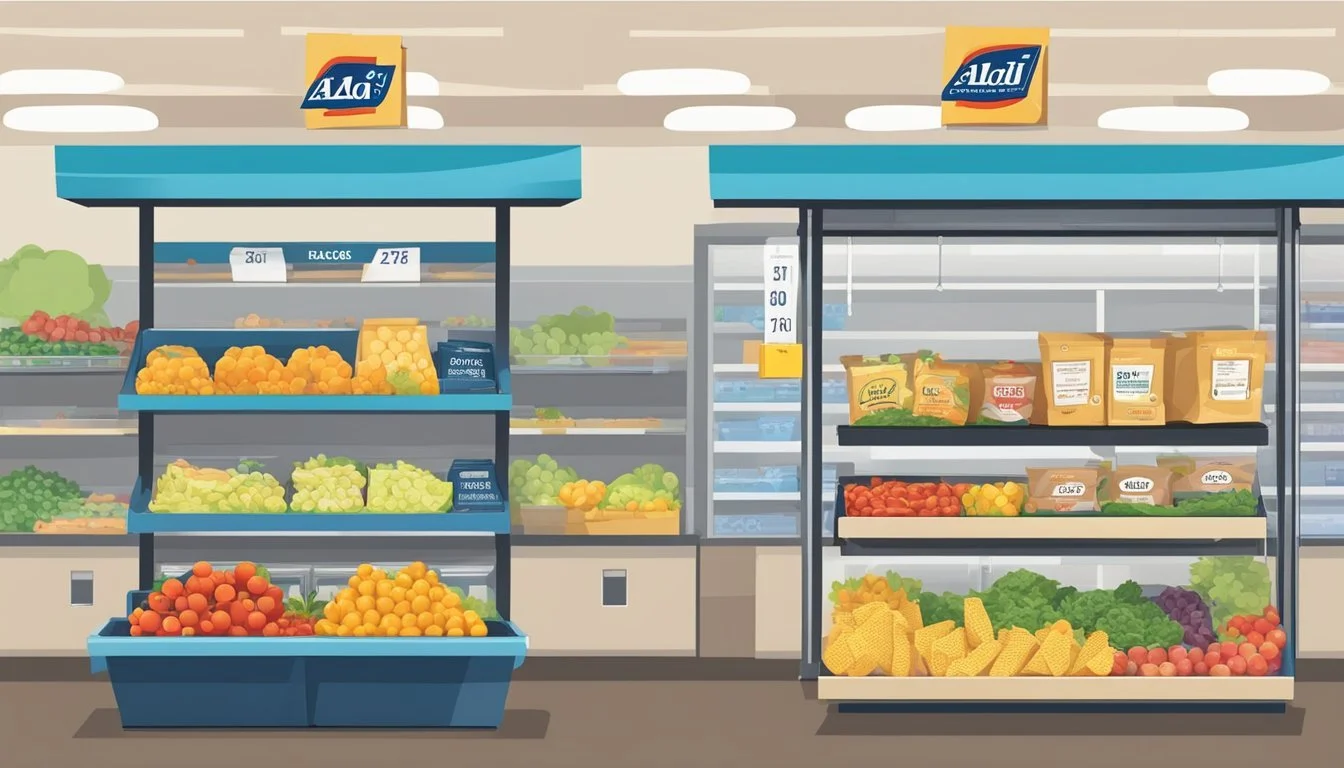Is Aldi Cheaper Than Giant Eagle?
A Cost Comparison Analysis
Part of Our Grocery Store Guide with Details on Aldi Prices and Giant Eagle Prices
Consumers are becoming increasingly savvy when it comes to grocery shopping, often seeking the best value for their money in a fluctuating economy. Among the plethora of options available, Aldi and Giant Eagle stand out for their distinct approaches to providing groceries at different price points. Aldi, recognized for its cost-effectiveness, continues to maintain a competitive pricing strategy that attracts budget-conscious shoppers. Their business model focuses on a no-frills shopping experience, offering mainly private-label brands and a lean selection of products, which has consistently positioned them as a leading contender in the realm of affordable grocery chains.
Giant Eagle, on the other hand, operates over 400 locations and offers a broader range of services and product diversity, including national brand items. The store's dedication to value is apparent in their marketing and loyalty programs, which are designed to enhance customer savings. Despite appearing to be costlier on the surface when compared to Aldi's streamlined inventory and pricing, Giant Eagle provides its own unique set of benefits and value to customers who prioritize a more conventional shopping experience.
When it comes to determining which store offers the lowest prices, Aldi frequently emerges as the more economical choice, particularly for those willing to forgo brand names. However, customers' final decisions may hinge on a balance between cost and shopping preferences, taking into account factors such as product variety, store location, and the value added through customer service and shopping ambiance.
Understanding Grocery Pricing
When it comes to grocery shopping, the price is a crucial deciding factor for customers. Understanding how prices are determined can help shoppers make informed decisions and possibly save money.
Factors Influencing Grocery Prices
Grocery prices are shaped by a variety of elements. Region and nationwide economic conditions can cause price fluctuations due to supply chain variations, affecting both low prices and high prices. For instance, the cost of living in a specific area will influence the pricing in local stores such as Giant Eagle or Aldi.
Grocery Store Business Models
Different grocers—be it discount stores like Aldi, traditional supermarket chains like Giant, or upscale markets like Whole Foods—operate under distinct business models. Discount supermarket chains often focus on keeping costs down through minimalistic store setups and high turnover of select products, whereas traditional supermarkets might emphasize variety and customer service.
Role of Private Labels and Brand Names
Store brands, typically offered by chains like Aldi and Trader Joe’s, are priced lower than name-brand products commonly found at stores like Walmart and Giant. These private labels help in maintaining competitive low prices while ensuring quality.
Pricing Strategies and Sales Tactics
Retailers employ various pricing strategies and sales tactics, including offering everyday low prices, digital coupons, and loyalty programs to attract frugal shoppers. Sale prices and temporary promotions are common tactics used to draw customers looking for savings on their grocery bill.
Impact of Competition on Pricing
The presence of competitors like Walmart, Amazon, Kroger, and Aldi in a market creates a competitive environment that can lead to lower prices. Giant Eagle may adjust its pricing in response to competitors' strategies or the entry of new players like Lidl to maintain a customer base.
Consumer Shopping Habits and Expectations
Customers expect a balance between reasonable prices and product quality. Shoppers often choose stores like Market Basket, Wegmans, or Grocery Outlet based on past experiences, perceived value, and their grocery shopping habits, which in turn influences store pricing to meet these expectations.
Comparative Cost Analysis
This section conducts a detailed comparison of the costs associated with shopping at Aldi and Giant Eagle. It will examine the price disparity on identical items, break down the average grocery bill, explore long-term savings, and provide a market basket price comparison.
Price Comparison of Common Items
When comparing the prices of common grocery items between Aldi and Giant Eagle, it becomes evident that Aldi frequently offers lower prices. For instance, meats, dairy products, and produce tend to be more cost-effective at Aldi. Pantry staples like bread, rice, and canned goods also generally carry lower price tags at Aldi.
Average Grocery Bill Breakdown
A typical grocery bill at Aldi compared to Giant Eagle shows a recurring pattern of savings across various categories. Shoppers can expect lower grocery bills for fresh produce and paper products at Aldi. On average, purchasing these items at Aldi results in a grocery bill that is less than what it would be at Giant Eagle.
Long-Term Savings Potential
Over time, the cumulative effect of Aldi's lower prices can translate into significant savings. Customers who consistently choose Aldi for their grocery needs may see substantial reductions in their yearly expenditures, especially in families where savings on essentials such as meats and dairy products are crucial.
Market Basket Price Comparison
A market basket price comparison is practical for assessing overall value. An assorted basket of groceries—combining meats, dairy, produce, pantry staples, and paper products—has been shown to cost less at Aldi. Therefore, consumers seeking the cheapest groceries would find Aldi to be the more economical choice when analyzed through a comprehensive market basket assessment.
Quality Assessment
In assessing the quality of products from Aldi and Giant Eagle, customers often consider factors such as the freshness of produce, the quality of store brands, and the availability of organic options. The perception of quality plays a pivotal role in shaping customer satisfaction and brand loyalty.
Product Quality Comparison
Aldi is known for its cost-effectiveness, and in many instances, this does not come at the detriment of product quality. Customers frequently find that store-brand goods from Aldi rival their branded counterparts, particularly in staple categories. The retailer's focus on affordability extends to its organic produce range, which is both economic and reputable among buyers.
On the other hand, Giant Eagle provides a broader assortment of products, including an in-house bakery, deli, and meat department. Their commitment to variety often comes with a perception of higher quality, especially in the fresh goods categories. Giant Eagle's organic produce selection is viewed favorably, although typically priced higher compared to Aldi's offerings.
Customer Satisfaction and Brand Loyalty
Customer reviews suggest that both Aldi and Giant Eagle have cultivated loyalty through their product offerings, but they approach it differently. Aldi's customers appreciate the simplicity and quality of its store brands, which tend to exceed expectations for the price point. The company's straightforward shopping experience, minus bells and whistles, centers on efficiency and value, fostering a different kind of satisfaction.
Giant Eagle, conversely, invests in customer service and loyalty programs, which enhances the perceived value of their products. Their emphasis on a comprehensive shopping experience, including amenities such as floral services and specialty departments, contributes to a strong sense of brand loyalty. Giant Eagle's customers value not just the quality of products but also the shopping environment and additional services provided.
Shopping Experience Comparison
When comparing Aldi and Giant Eagle, shoppers will notice distinct differences in store layout, product availability, and customer service, which affect the overall shopping experience in each location.
Store Layout and Shopping Convenience
Aldi stores are known for their straightforward, no-frills layout, designed to maximize cost-efficiency for the customer. Shoppers find a consistent organization across locations, which often makes the shopping list easier to tackle. Giant Eagle locations, however, offer a more traditional supermarket experience, with wider aisles and potentially more elaborate displays.
Availability of Products and Brands
Aldi's focus on store-brand products allows for competitive pricing, which affects their selection of goods. Shoppers will find a curated range of staples, including produce, meats, and dairy products. In contrast, Giant Eagle provides a broader assortment, including national brands and a larger variety of specialty items, such as organic and gourmet products, which can be good for customers seeking diversity.
Customer Service and Store Policies
Customer service at Giant Eagle is highlighted by various loyalty programs and promotions, intended to personalize and enhance the shopping experience. The presence of staff is typically more noticeable, aiming to assist customers in finding items or resolving issues. Aldi's approach to customer service is more self-service oriented, with fewer staff and a swifter checkout process, which can be a trade-off for their lower product prices.
Additional Considerations
When comparing Aldi and Giant Eagle, shoppers should consider factors beyond price alone, including the stores' geographical reach, their environmental and ethical policies, and the overall reputation they maintain among consumers.
Geographical Availability and Expansion
Aldi, originating from Germany, operates over 1,600 stores across 35 states. It has a widespread presence nationwide, enabling it to offer competitive pricing due to its large scale. In contrast, Giant Eagle is a regional player with approximately 474 locations in the Midwestern and Mid-Atlantic regions of the United States, focusing primarily on those specific locales.
Environmental and Ethical Considerations
Both Aldi and Giant Eagle have various initiatives that reflect their commitment to environmental sustainability and ethical business practices. Consumers who are environmentally conscious may seek out information regarding the stores' sourcing policies, waste management strategies, and efforts to reduce their carbon footprint.
Aldi: Known for its cost-saving measures, Aldi also extends this philosophy to its environmental practices, actively working to improve its energy efficiency and reduce waste.
Giant Eagle: This retailer has been involved in various initiatives such as sustainable sourcing and offering organic products, catering to those who prioritize environmentally friendly and ethically sourced goods.
Brand Reputation and Public Image
Shoppers often consider the reputation of a retailer when making their purchasing decisions.
Aldi: It is generally perceived positively for its store brands' quality and value, creating a strong brand loyalty among its customers.
Giant Eagle: It has a reputation for providing a one-stop shop experience with a variety of name-brand and quality products, which reinforces its image as a dependable grocery store among its regional customer base.
Each store's public image plays a crucial role in influencing shoppers, as perceptions of quality and value can sway consumer preference between Aldi and Giant Eagle.
Conclusion
When comparing Aldi and Giant Eagle, one must consider both cost and the variety of products offered. Aldi is recognized for its cost-effectiveness, particularly for staples; a salad pack, for instance, may be significantly less expensive at Aldi than Giant Eagle. They maintain their position as a leading discount grocer, making it an attractive option for those seeking savings on their grocery bills.
In contrast, Giant Eagle is categorized as a medium-priced retailer. They offer a broader selection of products than Aldi and enhance the shopping experience with loyalty programs and customer service emphasis. While Aldi is known for its budget-friendly prices, the slightly higher cost at Giant Eagle may be justified for shoppers who value a wider range and specific brands or products not found at Aldi.
Regarding quality, both stores have been recognized for having reputable produce, with a slight difference in the size and cost of items like apples and oranges. Aldi’s no-frills approach allows them to offer lower prices but limits their product range.
Consumers often supplement their Aldi shopping with visits to other stores for items not on Aldi's inventory. Whether Aldi is cheaper than Giant Eagle boils down to an individual's shopping list, with Aldi offering savings on generic items and Giant Eagle providing diverse options with variable pricing. Shoppers seeking the lowest prices for their groceries will likely find Aldi to be the more economical choice. However, those prioritizing a one-stop for variety and specific brands might lean towards Giant Eagle, accepting a higher cost for convenience.






